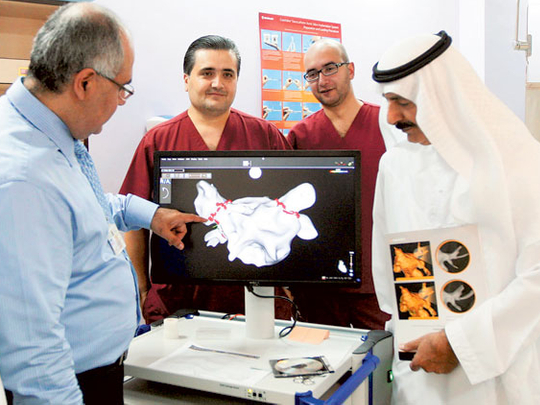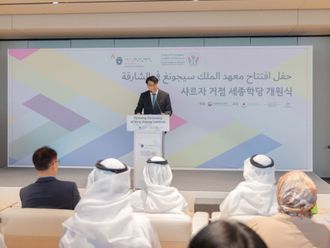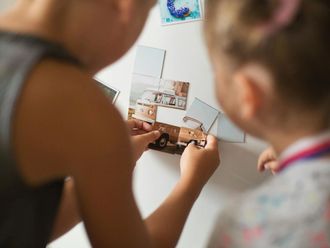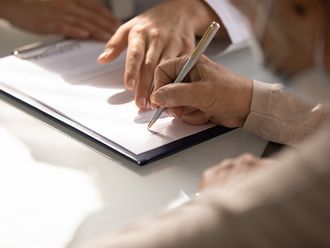
Sharjah: A new 3D heart mapping device — similar to a car GPS system — is set to revolutionise cardiac surgery in the UAE.
The Dh2 million system has been installed at Al Qasimi Hospital in Sharjah.
The Carto 3 System gives a three-dimensional view of a patient’s heart, helping surgeons identify the site and origin of cardiac arrhythmias and abnormal heart rhythms, and treat the condition with a high success rate.
Introduced to the hospital by the Friends of the Patients Committee, the device is considered the first of its kind in the region, according to Dr Arif Al Nooryani, CEO and head of the cardiology department at Al Qasimi Hospital.
The new device allows the delivery of radio frequency catheter ablation therapy, to treat heart rhythm abnormalities.
Dr Al Nooryani said: “The new device is an electroanatomical navigation system used to view the electrical activity of the heart through real-time data on 3D, colour-coded cardiac maps.
“It delivers unparalleled accuracy that has made Carto System technology the leader in 3D mapping.
“The system also introduces important new capabilities that can elevate your procedures to a whole new level.
“Accurate visualisation allows you to see the anatomy with precision and clarity and increased mapping speeds enable physicians to map quickly.”
Likening the high tech device to a car’s satellite navigation system, Dr Al Nooryani added: “The system is typically described anecdotally as ‘similar to the GPS unit in a car’, indeed it operates on several of the same principles.
“The GPS satellite network operates by transmitting the location and reference time on each satellite via a radio signal, allowing the user’s GPS device to triangulate its position from multiple satellites.”
With the device’s Fast Anatomical Mapping feature an anatomical map is created as a catheter is moved throughout the cardiac chamber similar to the way that a global positioning system can immediately track where a car may be — producing high resolution images.
“This new therapy has a high short-term success rate, low complication rate, and results in improved quality of life compared with other treatments,” Dr Al Nooryani said.
Four patients, aged between 33-55, have already received the 3D treatment — two Emiratis, one Palestinian and one American.
After six months, the procedure’s success will be evaluated.
Shaikh Mohammad Bin Saqr Al Qasimi, Director of Sharjah Medical Zone, accompanied with officials from the Friends of the Patients Committee, visited the patients after their operations earlier this month.
He told Gulf News that they would bear the cost of the new device.
“We have seen positive clinical outcomes with the 3D system and are pleased to offer it to individuals,” he added.












